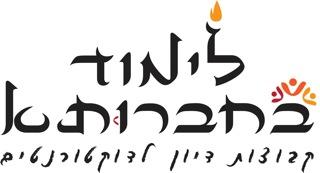במפגש הציגו 2 ממשתתפי הקבוצה את מחקריהם.
נעם ברנר:
Legitimate after all? The effect of Urban Geography on Preference of City Institutions in Jerusalem
Divided cities, like Belfast, Jerusalem, Nicosia or Mostar, suffer from asymmetrical power relations and low levels of trust between the municipality and the disadvantaged groups. Despite this, members of these groups are still trying to obtain their right to full urban citizenship. Some do so through local leaders, and others even turn to the municipality itself. This puzzle employed many researchers who tried to explain why residents with limited citizenship or deprived of power still give legitimacy to those in control? In this study, we discuss the urban problems of Israeli and Palestinian residents in the divided city of Jerusalem and their preferences regarding city institutions. Our argument followed the common idea that effective governance increases the legitimacy of the responsible governance actors, and higher levels of legitimacy increases their effectiveness. We add that the residents’ preferences change due to the presence of the municipality in the neighborhood – city center, second circle and beyond the separation wall. The Results based on an original representative public opinion survey of residents of East and West Jerusalem, attest to significant differences in the severity of issues that concern Palestinians and Israelis, and in overall preference of the institution or leader they see as most fit to remedy their concerns. Moreover, results from a CEM model show significant differences between group members according to their distance from the city center. Implications beyond the Jerusalem case are discussed.
מיכאל זיו-קנת:
Can the city revolutionize the way we work, trade, share, live and do politics? Seen as the great human project of the 21st century, a growing number of activists, politicians and scholars think it will, but the real question should be “how?”. On the 10th of June 2018, a new Italian government, headed by the far-right party La Lega, refused docking to the NGO owned rescue boat ‘Aquarius’ in Italy’s naval ports. The boat was carrying 629 migrants from Africa, who were stranded at sea, while trying to make the perilous crossing from Africa to Europe. This spurred an open challenge from several southern cities’ mayors, including the mayors of Naples and Palermo, that called their local port authorities to disobey the government’s directives and allow the vessel to dock.


